A proud descendant of Ngāti Maniapoto and Tuwharetoa, whose roots run deep in the rich cultural tapestry of Aotearoa. Raised in a large, loving whānau in Taumarunui, Ava-Elise’s journey is a testament to the power of self-discovery and resilience. Her story is one of overcoming grief, embracing her identity, and finding her place in the world of real estate. Through her experiences, she has learned the importance of knowing oneself, understanding one’s whakapapa, and staying true to one’s values.
Ava-Elise’s path has been anything but linear. From the loss of her beloved nanny to the challenges of entering a new industry, she has faced each obstacle with courage and a commitment to growth. Her journey in real estate began unexpectedly, but it has become a platform for her to serve her community and help others achieve dreams they never thought possible. Her story is a reminder that success is not just about what we achieve, but who we become in the process.
The six pou of Mata Ārahi Manomano drive the questions we have used to profile Māori & Pacific role models, in the Service sector.
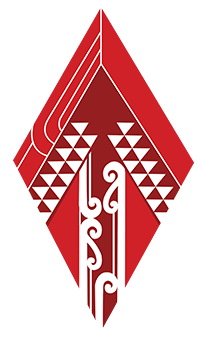
|
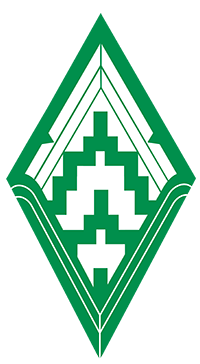
|
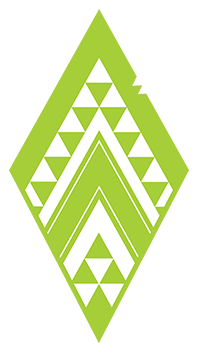
|
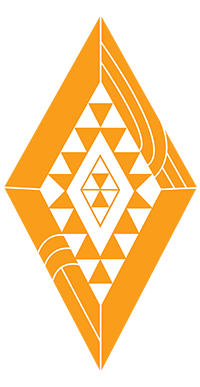
|
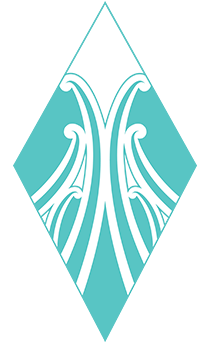
|
|

Representing the levels and forms of aroha that can be found throughout our lives across our many communities. We acknowledge the wide range of obstacles and the journey it takes to overcoming everything that stands in our way to expressing aroha within.
He uri ahau nō Ngāti Maniapoto me Tuwharetoa au taha pāpā.
I te taha māma Te Ata Haunui-a-Pāpārangi me Ngāti Hauā, e ngā iwi katoa.
My name is Ava-Elise. I hail from the beautiful Tuwharetoa and Maniapoto, born and raised in Taumarunui, and I am one of five tamariki. I’ve got a big family. A lot of my strengths and weaknesses are systemic of being from a big family, so my strengths are definitely that relational connectivity to people. Thinking about the oneness of self and oneness of all. The connection between other people, the collaborative mahi between other people growing up. You either collaborate or get left behind. So, I had the beautiful honour of being raised in a huge whānau with big love and big respect.
Those communication skills and the ability to connect with others are thanks to my parents for being able to pass down those gifts, talents, and skills. Also, due to being in a big whānau, you have to be organised, resourceful, and work with all to produce for the big. I became very unintentionally and intentionally organised, and mild ADHD and OCD were the weaknesses. Sometimes it’s that self-belief; when you come from a big whānau, sometimes you feel more comfortable being behind the scenes and letting everyone else go forward.
You know, we always say a tea towel is a taonga, but sometimes you use that analogy too hard. The weaknesses that I have been chipping away at and working on are definitely that self-belief and being OK to step forward. It’s OK to come forward. It’s OK to be proud and be. Two things can be true: you can be humble and serve at the same time. You know what I mean? You can be proud of who you are and humble at the same time. However, that’s still a work in progress for me, putting the temptation and carefulness aside, acknowledging it but also letting go.
I’m being OK with coming forward. So yeah, a pioneer.

With adventure comes challenges as well as obstacles to overcome. We stand proud as we overcome these obstacles. This tohu draws inspiration from the Niho Taniwha and Aramoana patterns. We acknowledge reaching our destination and preparing ourselves for the many new adventures ahead.
I think a roller coaster would be an understatement. And I think linear would be a lie.
In terms of real estate and specific to that, I was actually in Palmerston North at the time, sitting on the side of the road with my lunch during my lunch break. Someone I knew from another sphere of life drove past. He ended up pulling over and asked, “What are you doing?” I replied, “Eating my lunch. What are you doing?” He then asked, “No, what are you doing?” in a deeper, more meaningful way. He offered me a job at an agency they had just started in Lower Hutt. So, I packed up my stuff a month later and moved back to Wellington.
In terms of real estate, that was my only induction. I had never been in property, real estate, or the corporate world much before that. So, my roller coaster journey was anything but linear.
I started in admin, then moved to the back end. While I was learning that, I was also studying for my license. I was juggling all these different things, including another study and working part-time. So, calling it a roller coaster is a bit of an understatement. Emotionally, financially, spiritually, and mentally, it was challenging. There were many rooms I found myself in where I wondered, “How the heck did I get here?” But you just roll with it and go with it.
The transitions of life mean you either get on the ride or get left behind. I don’t want to be left behind in life. Life’s too short, too beautiful, and too precious. So, I told myself, “Give it a crack, and if you fail, fail forward. You’ll be fine.” And now, here I am. I’ve been in real estate for four years. It feels like a blur, but I think this is thanks to my village mates and my parents. When you have a strong base, whether it be your faith or your whakapapa, you feel almost immortal. Even if I do fail, I can go back home, have a cup of tea and a biscuit with my nanny, and then get back out there.
So, yeah, I’m very honoured to have had the journey I’ve had so far. Very honoured.

These patterns represent bravery and being strong in the face of adversity. We strive to be persistent and positively challenge anything that threatens to alter, restrict, and put a barrier in the way of our desired pathway.
I think there have been many, but the one that has stuck with me the most—you always remember the best kind of advice when you’re in the worst of times, right? The one that I always come back to is from one of my mentors.
He said, “It’s not about what you’ll produce and what you do. It’s about who you become.” I thought, “Oh yeah, that sounds cool. Can you elaborate?” And he goes, “OK, darling, close your eyes and think of the dream that you’re thinking of. Think of your wildest dreams.” I sat there and closed my eyes. He said, “Now that you’ve got your dream, don’t think about what you’re doing. I want you to think about who you are. What does that person look like? What do they sound like? How do they treat people around them? How do they dress? How do they hold themselves? What values do they operate from? What foundation are they holding for themselves and for the people in their circle?”
That changed my whole perspective of success. It changed my whole perspective of legacy and achievement. It shifted from “What will I obtain?” and “What will I produce?” to “Who am I becoming?” My name will fade, but the impression of love will never fade. As the classic saying goes, “People don’t care how much you know until they know how much you care.” Care is also a branch of the root of love.
So that piece of advice—it’s not about what you produce, it’s about who you are becoming—changed my whole world. Because who you become will stand the test of time. Everything else—our cars, our phones, even our money—will fade away. It’s the intangibles that will leave the greatest legacy.

Here we are drawing inspiration from the Pūhoro pattern. The pūhoro is used here to represent the strength, speed and agility needed to move forward and accomplish ones goals.
My biggest recommendation, and probably the one I’ve made the most, is to learn who you are. Learn the things that make you hide and learn the things that make you heal. Learn the things that make you hope. Learn the things that make you happy. Learn all that you can about yourself. What I didn’t realize, and what I’m grateful for in hindsight—hindsight is a beautiful thing—is that real estate, because it’s such an explicit industry, caused me to sit with myself more. Because my name is out there, my face is out there, I want the veil between what they see outside and who I am to be as thin as it possibly could be.
I want it to be transparent. I want it to be so beautifully entwined that the person they see out there is the same person you’re gonna get at a coffee table, the same person you’re gonna get at my dinner table.
The recommendation I would give to people who want to get into real estate is that it’s very, very exposing. Whether you like it or not, it will come up. So the more you work on yourself, the more you learn about yourself. I have a Scottish brother, and he goes, “I’m going through these things and I’m struggling with these things. What do I do?” And I told him to learn his whakapapa. He said, “Oh, I’m not Māori.” And I said, “No, I’m Scottish and Irish too. You need to learn the whakapapa specific to you.”
So learn who you are, and out of that, he wrote a book about himself. He’s written a book called “Identity.”
That would be my greatest recommendation to anyone, but specifically for real estate, it will expose you fast. So learn who you are, your whakapapa, all of you. And don’t move from it. Don’t let the industry change who you are. Don’t let a room or a monetary value or a flashy light change who you are. I didn’t do that.
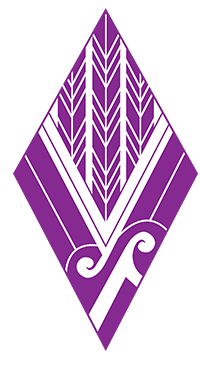
Success, best mentioned in the whakatauki “Tūwhitia te hopo, mairangatia te angitū!” Feel the fear and do it anyway!
It might be a bit of a left-field one. My biggest challenge has been grief. I lost my paumanawa, my nanny, my father’s mother, four years ago.
And the timing of how long I’ve been in real estate and the timing when she passed lines up, so I mihi to her in this. When she passed, the questions that came out were, “I wish I’d done more. I wish I had put fear to the side more and just done something.” There were a lot of times where I traded time with her or even just in general, right? You trade time. “I’ll just do this. I’ll get this over the line,” and then they go. And then you would give the whole world and then some, you would give 100 worlds if you could just have 5 more minutes or even one more day with that person. So yeah, grief was one of the biggest challenges that pushed me to make sure that I never live in the “what ifs” and I never live in the “I wish.”
When real estate presented itself as a possible avenue, I was so scared. I was like, “Who does this crazy girl from Taumarunui think she is?”
Who does this chunky, voluptuous mama from Tuwharetoa think she is?
But then I thought, “Why not? Why not me?” One of the biggest challenges is continuously telling myself that I don’t have to prove my existence. I don’t have to push for my existence. If I have to, it’s not meant for me. But what’s meant for me will open up. What’s meant for me will come.
One of the greatest life challenges we hold is loss. There’s loss of people, positions, but the deepest one is our people, and that one for me was my nanny. She was a beautiful, beautiful woman. She always told me, “You’re mine. You’re mine.” And I was hers. She always said, “Do it. Do it. Do it.”
It’s funny how you learn from life’s challenges. What used to be a really stingy conversation, I couldn’t even talk about it. I couldn’t even look at it. I would lose my mind. But now you learn and adapt. So yeah, that’s been my biggest challenge—grief. But I just hear my nanny’s voice saying, “Oh baby, go baby.” She would chuck in a few bombs here and there, but yeah.
Yeah, that would be mine.
Grief comes in many forms, not just losing people but also in relationships in general. A change in a relationship can catapult us into a new phase.
I think the biggest one has been the part we get to play in helping people achieve dreams they never thought they could. We had this beautiful kuia, and she told us, “No, I’m too old to get a home. I don’t have this and that.” And now I can ring her from her own home.
It’s not necessarily that we did 100 different things, but I call ourselves professional problem solvers and sometimes part-time therapists.
It’s about helping people shatter the glass of doubt, even a mindset shift, like helping people realize, “No, this is meant for you.” Marry the journey, not the destination. And then they do, and they get to their destination. We had another beautiful young woman, 21, who thought she was too young and didn’t earn enough. Now I can ring her again from her own home.
My biggest blessing and win has been serving people who never thought they could achieve their dreams. Helping people hope enough so that they can cross the line themselves.
Leaving that trail and the imprint of love. Making sure we keep the mana intact because in this industry, people like to trample over that to get to money. But not us.
People give us love and kisses and thank yous and flowers, and I go, “You did the same. If it wasn’t for the work you’ve done on your own, you wouldn’t be here.” Anyone can work a computer, do a contract, use a pen and sign a signature. But not everyone can have the depth of humility to work on themselves, especially a mindset to step forward.
I’m grateful to everyone we’ve been able to work with. That’s my biggest blessing and my biggest win.
When you don’t move from who you are, it actually blesses people. When we operate from our entirety, it blesses the world more and refreshes you more.
So yeah, we sit with the whānau, have fish and chips, and it’s fine. That’s what it’s about.
So yeah, really honoured. Really, really honoured. And not just to say that to sound nice and cool and sweet, but I am.